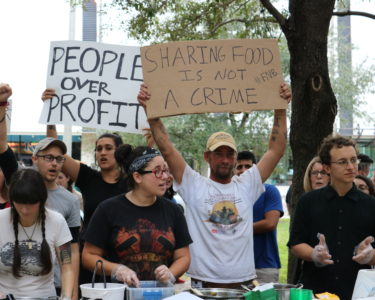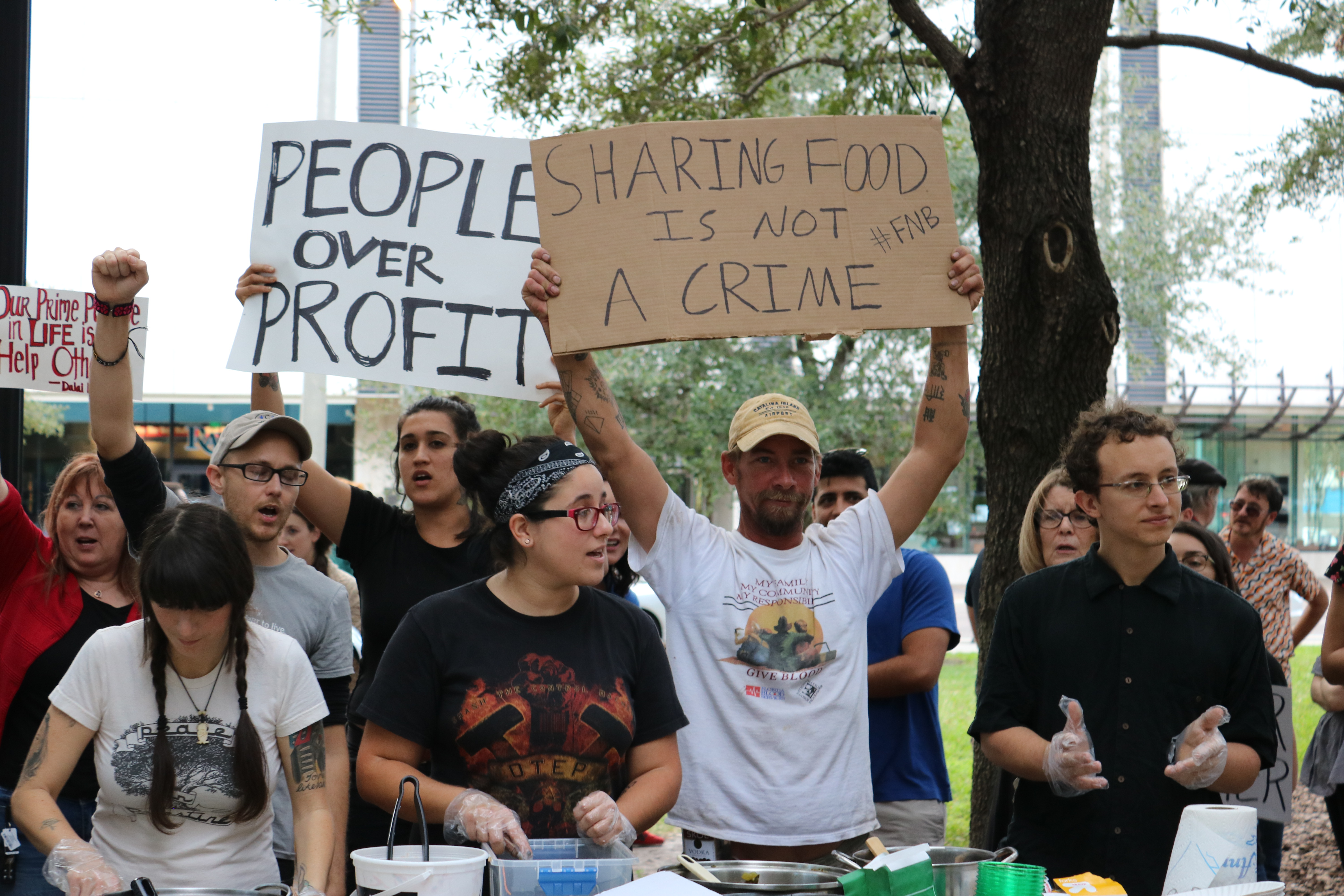It’s been over two weeks since the Tampa police department arrested seven Food Not Bombs activists for distributing food without a permit at Lykes Gaslight Park.
We’ve had time to feel bad, now it’s time to feel wary, and to think.
Food Not Bombs (FNB) has grown into a worldwide activist organization since it first organized in the early eighties to protest against nuclear industries, America’s involvement in the ongoing Iran-Iraq war and the Reagan administration.
The organization has suffered arrests throughout its history, many stemming from trespassing and the disregard of food service regulations. On Jan. 7 the Tampa group was arrested for not having a permit to distribute food in the open. At the same time, tens of thousands of football fans rushed to Tampa to watch the college football championship.

In 1986, Boston’s FNB group organized “Welcome to Kenmore Square” to give meals to the homeless during the World Series between the Red Sox and the Mets.
This time, the Tampa FNB group was warned that they would be arrested if they set up tables to give out food. Which was what they did, and precisely what came as consequence.
“Feeding the homeless is not a crime,” they say. It’s not if one has the proper paperwork that assures the food being served is safe and will be handed out in a sanitary manner, on a sanitary site. Permits are put in place to assure the well-being of those eating the food, and to protect those providing it. Not only this but also to uphold a safe environment for the people in the surrounding areas.
As soon as the news came out, social media sites erupted in defense of the group. Tampa’s police department was villainized for upholding city ordinances and even the Mayor’s position was put into question.
The group defends the compassion of its actions and accuse the city’s government of inhibiting the care of those in need. They seem to overlook the long list of homeless shelter and food kitchens readily available across Tampa.
The Tampa-Hillsborough Homeless Initiative (THHI) is the organization designated to fund homeless service providers across the Tampa Bay area. They are assigned and funded by the state of Florida and the federal government to work collaboratively with homeless shelters and food kitchens in their attempts to end homelessness.
According to THHI’s CEO Antoinette Hays-Triplett, there is currently no shortage of food in downtown Tampa’s kitchens, and many of them offer meals two to three times a day.
These kitchens provide proper accommodations to serve our homeless community and would benefit from volunteers willing to provide their services from within their sites. Trinity Cafe is one such kitchen that is currently welcoming volunteers, as there are days when they can only serve a single meal. They have openly expressed that they would be readily acceptant of FNB assistance to fill in where they can’t.
THHI’s mission spans beyond serving short-term solutions and aims to provide permanent solutions for the homeless. They build affordable housing, work with homeless shelters to expand their capacity and are pushing back regulations that formerly prohibited accepting anyone under the influence or demanded charges after a few day’s stay.
Our aim as a community should not be to invite homeless individuals into public parks, which often become unsafe and even frightening to walk by but to encourage them into shelters that provide rehabilitation.
Whether or not FNB agree with city ordinances and laws, it does not mean they are above them. FNB’s current actions are counterproductive, divisive, and damaging to our community. They not only propound a false narrative and invite situations that set residents against police officers, they also give a wrong impression of our city and take attention away from organizations that are impacting enormous change and are doing so legally.



